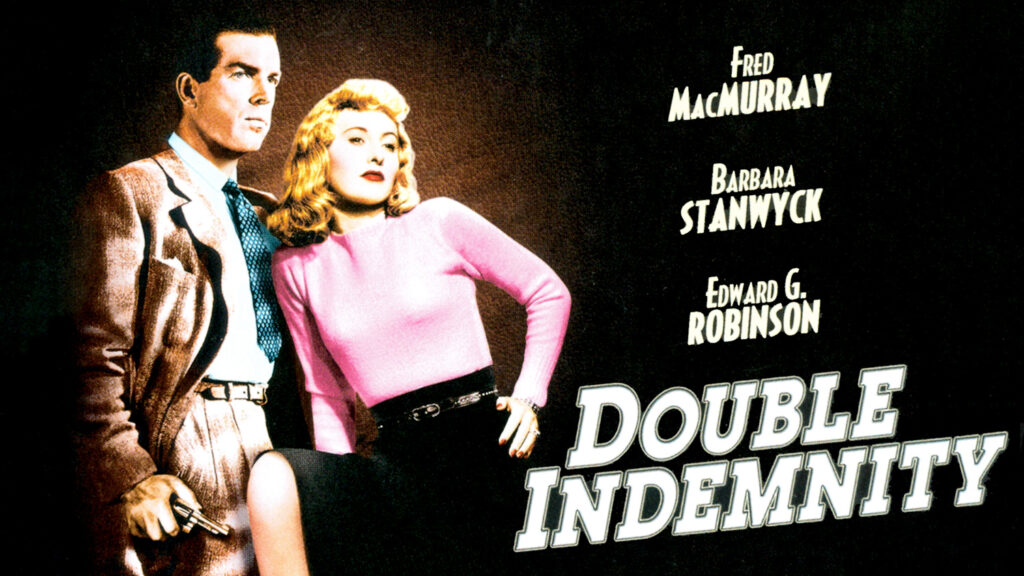Double Indemnity is one of those movies that I’ve seen countless times, and will happily watch again.
For many of us, Fred MacMurray was the easygoing father, Steve Douglas, in the long-running TV show My Three Sons. In Double Indemnity, he’s the fast-talking, unsmiling insurance salesman Walter Neff, who is easily pulled into a scheme with a woman he’s fallen for, Phyllis Dietrichson (Barbara Stanwyck), to murder her husband for the insurance money.
Visually and plot-wise, Double Indemnity is a film noir, but the dialog is straight out of hard-boiled detective fiction. It makes sense since the script was co-written by Raymond Chandler.
Chandler was one of the “Black Mask Boys,” a group of crime-fiction authors lured by editor Joseph T. “Cap” Shaw to the pulp magazine. Black Mask introduced readers to hard-boiled detective fiction with the short novel “Three Gun Terry,” by Carroll John Daly, in its May 15, 1923, issue. The main character, Terry Mack, was a smart-alecky private detective who talked tough and in the vernacular of the streets, unlike the drawing-room detectives that had been familiar to readers.
Within a few months, the hard-boiled detective was a staple in Black Mask and other pulps as Dashiell Hammett, Erle Stanley Gardner, Raoul Whitfield, and many other fictioneers churned out story after story.
In the introduction to his collection The Simple Act of Murder (1950), Chandler wrote:
Pulp (magazines) never dreamed of posterity. … It takes a very open mind to look beyond the gaudy covers, trashy titles, and barely acceptable advertisements and recognize the authentic power of a kind of writing that, even at its most mannered and artificial, made most of the fiction of the time taste like a cup of luke-warm consommé at a spinsterish tearoom.
As in the quote, Chandler’s mastery of language accents every scene in Double Indemnity. His wordplay here replaces the gunplay of earlier gangster films. Listen to Walter’s narration as he records a confession to his boss, Barton Keyes (Edward G. Robinson), on a dictaphone, or listen to the exchanges between Walter and Phyllis, or between Walter and Keyes, and you’ll understand.
But unlike the hard-boiled detectives, who are doing what’s right but are on neither side of the law, MacMurry’s Neff has picked sides. The story unfolds quickly as Walter sinks deeper and deeper into the mire and his remorse begins to bubble up. You already know how this will end, but you still have to watch.
And I can’t wait to watch Double Indemnity again.

Well done, Bill. As I said, of all the great things about this movie, the writing ranks at the top.
Thanks, Joe. Yes, it’s just as enjoyable listening as watching.